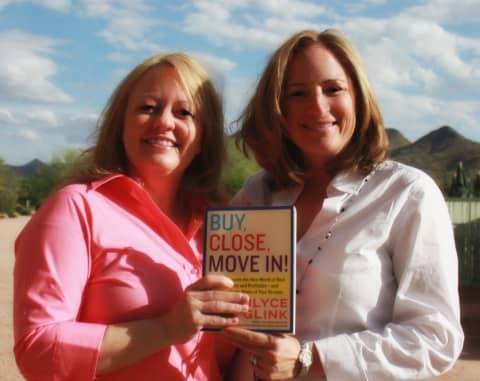Written by: Frances Flynn Thorsen, SRS, e-PRO
Online ratings are the new media rage! Consumers share reviews online about everything they purchase and every service professional they meet. With few local exceptions, the real estate social space has scant few places at the table for trustworthy and passionate agent reviewers.
Writing recommendations for others will ignite a reciprocity exchange and social adrenaline will move recipients to respond with their own recommendations. Brian Clark of Copyblogger writes:
“Sociologists maintain that all human societies subscribe to the principle that we are obligated to repay favors, gifts, and invitations. It makes sense, really; reciprocity is at the root of what makes us human, and has allowed us to adapt and progress from early primitive tribes to a complex global economy.”
Imagine a prospective client sees a thread of recommendations from people at all stages in your career. Imagine the confidence you can inspire with written testimony of your service.
The best strategy to attract reviews is to write reviews for others!
1. Don’t waste time looking for a decent agent review site – Agent review innovation is principally a local phenomenon. (i.e. Redfin, and Houston and Colorado Realtors). Most Web developers’ attempts in recent years to devise agent review websites yield dismal results. Agent Invitation and Agent Scoreboard feature paltry data, incomplete profiles, and little to no engagement in most states. Agentopolis, AgentRank, and Incredible Agent feature deceased agents in their databases years after the agents’ demise.
2. Create a list of strategic testimonial and review sites.
Your blog is the best first place to post reviews and testimonials about local eateries, businesses, and services.
LinkedIn offers 65 million plus members a managed solution to write and receive recommendations about their connections. Create thoughtful, personal testimonials on LinkedIn and copy them to a Word document to republish on other social sites.
Yelp features user generated reviews about restaurants and local businesses, including a real estate review category. Claim your company listing there (before a competitor claims it) and commence writing reviews on local businesses. Scottsdale (AZ) Homesmart agent Stew Keene has written 63 local reviews, shared 19 local photos, and created Yelp lists of “Best Places to Eat in or Near Scottsdale,” “Best Biker Bars,” and “Phoenix/Scottsdale Motorcycle Dealerships” with rankings for each mention in the list.
Foursquare is the latest social mobile rage where agents find themselves checking in everywhere. Take advantage of the “tips” section and offer detailed narrative for richer engagement.
UnVarnished is a new rating site for professional users. The site is still in beta, reviews are anonymous and the recipient of a review cannot delete it! UnVarnished has a value proposition based in believability, designed to satisfy a growing appetite for more diverse reviews, good and bad.
3. Create a list of people with whom you have worked – Who are your favorite strategic partners? Who are the lenders, title reps, and home inspectors who serve your clients well? Use a LinkedIn Memory Jogger and add names to the list for review consideration.
4. Make a recurring testimonial appointment with yourself each week – Write at least five testimonials each week. This is one of the most important parts of a social media engagement plan. Few engagement models offer so many immediate and long-term benefits from consumers and real estate professionals. Don’t let the appointment slide!
5. Compliment, do not compete – The social media lexicon favors collaboration over competition. Grace at least one competitor with a favorable review or testimonial each week. Brokers earn social capital that pays dividends over time in their recruiting efforts. Agents curry favor with cooperating agents who look forward to working with them again.
6. Write a recommendation for a colleague – Don’t forget to acknowledge your fellow workers when you are complimenting the competition!
CAUTION: Many real estate agents and brokers work with family members on staff. If your family member has the same last name and holds a position in your company, do NOT write a LinkedIn recommendation for that person. A recent visit to LinkedIn found a boomer agent’s offspring sporting a “social media manager” title for the agent’s business. The young guru has 25 LinkedIn connections and a single recommendation – from her mother! This strategy scores zero on a believability index.
7. Be totally honest with each review! Do NOT laud a person or a business who has not earned the praise! Gratuitous testimonials are transparent. If you tell someone the event you attended last week featured the worst speakers you ever heard, and you felt the registration fee was a rip-off, do NOT post a congratulatory video with your Flip outtakes.
“Positive and negative feedback is more realistic, and that’s what consumers want,” says Inman News Contributor Frank Borges Llosa, real estate broker in Falls Church, VA.
8. Say, “Thank You” in writing for positive reviews and testimonials – Acknowledge positive feedback personally, with a private note between you and the person who wrote your testimonial. Handwritten notes using pen and paper will get the most attention because it is the least commonly used form of written communication these days.
9. Write a book review, buy a box of books, and give them away – Publish a good book review on your blog and post it on Amazon. Be honest!
Scottsdale broker Luetta NewNam wrote a book review for Ilyce Glink’s new book, “Buy, Close, Move In!” and posted it on her blog following a personal meeting with the author. (She discovered Glink’s book in an Amazon review). NewNam purchased dozens of copies of the book and she gives them to clients and customers and other Realtors. The broker’s book giveaway is an elegant alternative to the abbreviated home buyer guides other Realtors offer.
Writing book reviews is great practice to get “in the flow” of a testimonial directed mindset. If you do not like a book, say it in a review. Writing an honest review about a book or product you do NOT recommend will increase your believability score overall.
10. Review and remove testimonials when circumstances change – Some relationships change from good to bad. Assess conditions where testimonials and reviews no longer apply. Delete them accordingly. Treat inbound and outbound testimonials equally. Do not feature a testimonial to or from a person you do not trust and respect.
Frances Flynn Thorsen is a writer, speaker, and trainer, and co-author of “Real Estate Social Media Policies” and other books.
Copyright 2010 Frances Flynn Thorsen All Rights Reserved

Luetta NewNam and Ilyce Gilnk
Like this:
Like Loading...




